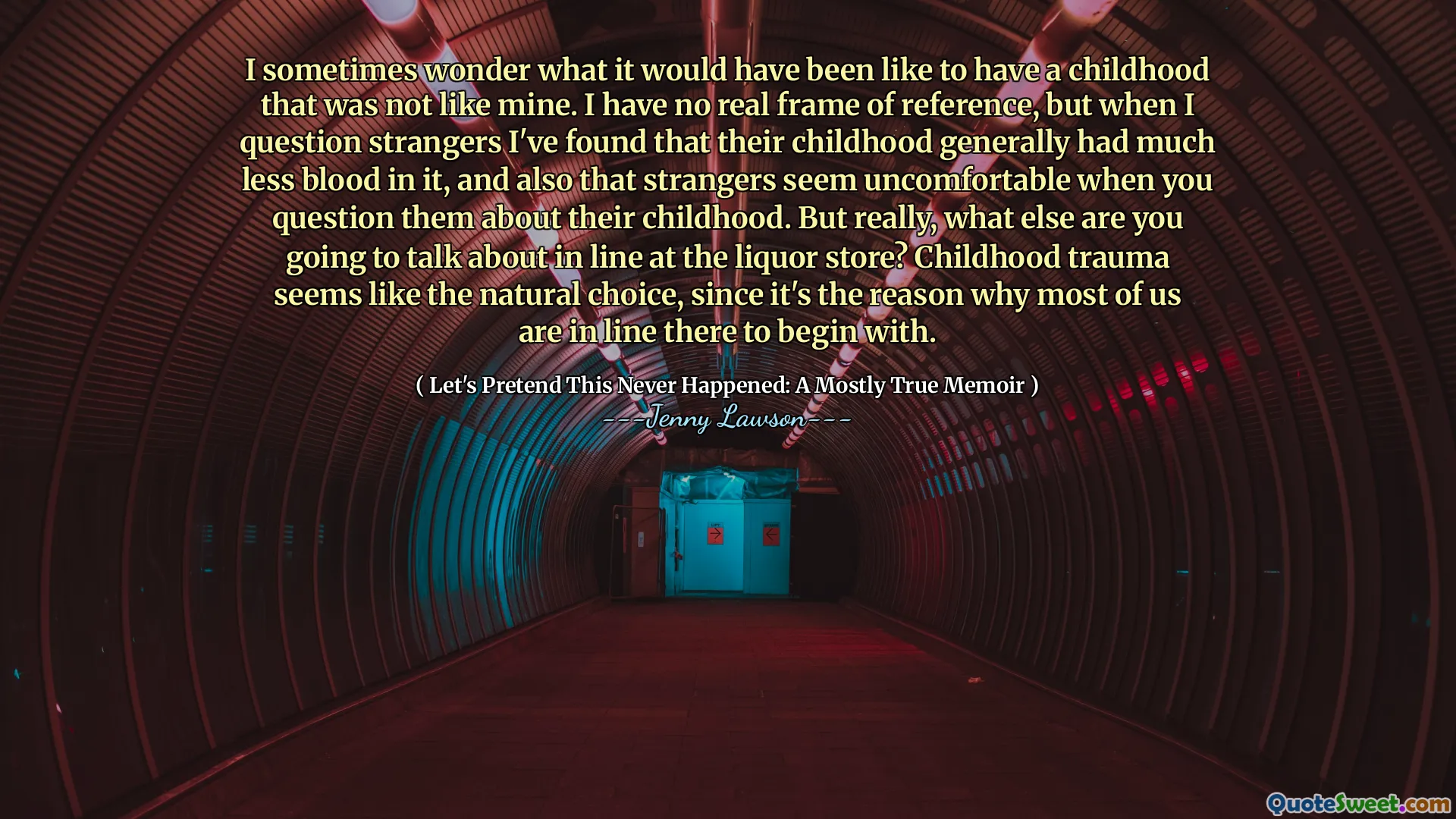
I sometimes wonder what it would have been like to have a childhood that was not like mine. I have no real frame of reference, but when I question strangers I've found that their childhood generally had much less blood in it, and also that strangers seem uncomfortable when you question them about their childhood. But really, what else are you going to talk about in line at the liquor store? Childhood trauma seems like the natural choice, since it's the reason why most of us are in line there to begin with.
This quote offers a candid and humorous exploration of the universality of childhood trauma and the way it influences adults' conversations and perceptions. The author reflects on their own unconventional or perhaps tumultuous upbringing, recognizing that their childhood lacked the stability or innocence that many might assume is typical. Their curiosity about others' childhoods reveals a common social tendency: people often feel uneasy discussing their pasts, especially if they carry pain or trauma. Yet, the author points out the irony that trauma is often the default topic in mundane settings like lines at the liquor store, suggesting that pain and shared hardship act as social connective tissue. This observation underscores how much of our social life revolves around vulnerability, even in seemingly trivial moments. Humor is evident in the contrast drawn between trying to inquire about someone’s childhood and the instinctive discomfort that arises—highlighting how confronting one’s personal struggles remains a sensitive area. Furthermore, the quote touches on themes of empathy, social norms, and the difficulty of genuine connection, illustrating how trauma shapes adult identity and interactions. It encourages reflection on how our backgrounds color our conversations and the importance of understanding the silent stories everyone carries. The candid acknowledgment of trauma's role in social experiences invites us to reconsider our assumptions about normalcy and the stories we share in everyday life.






